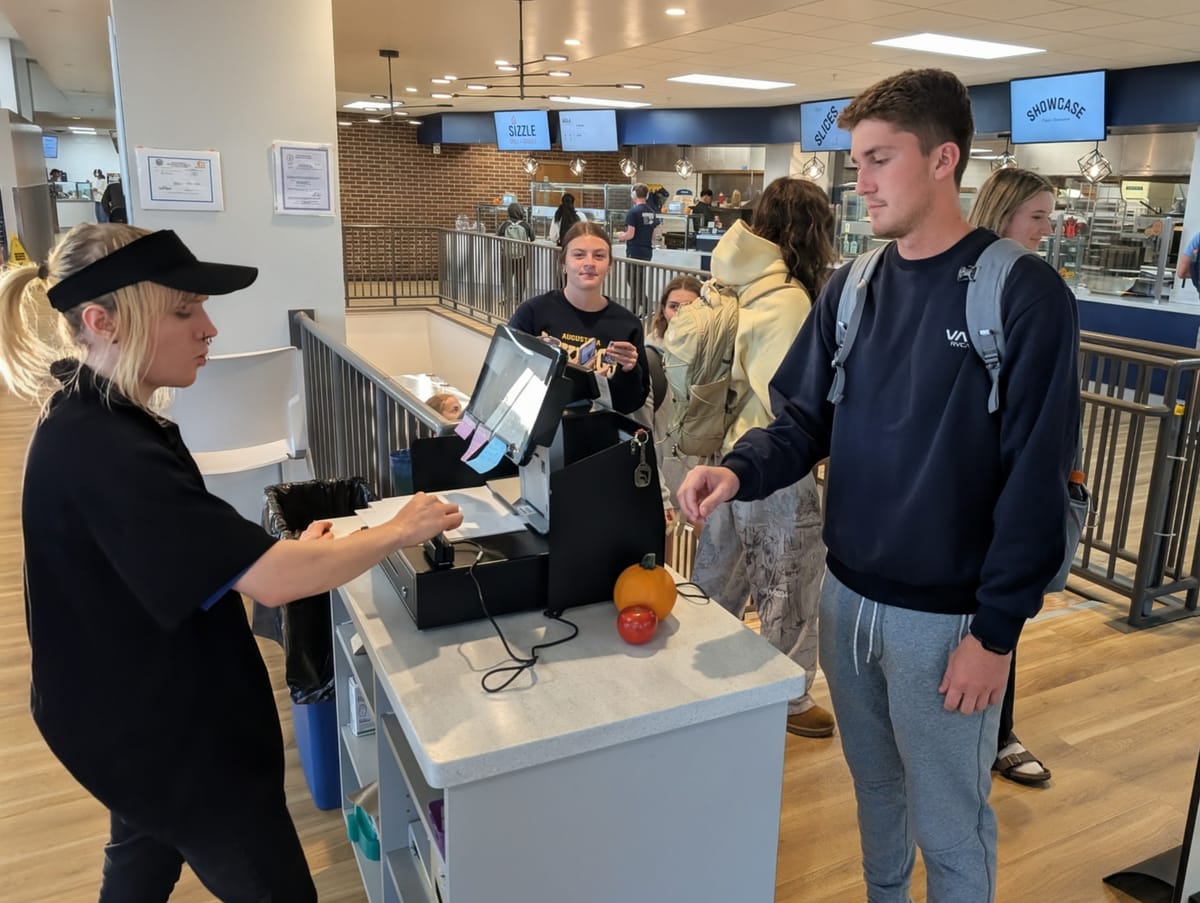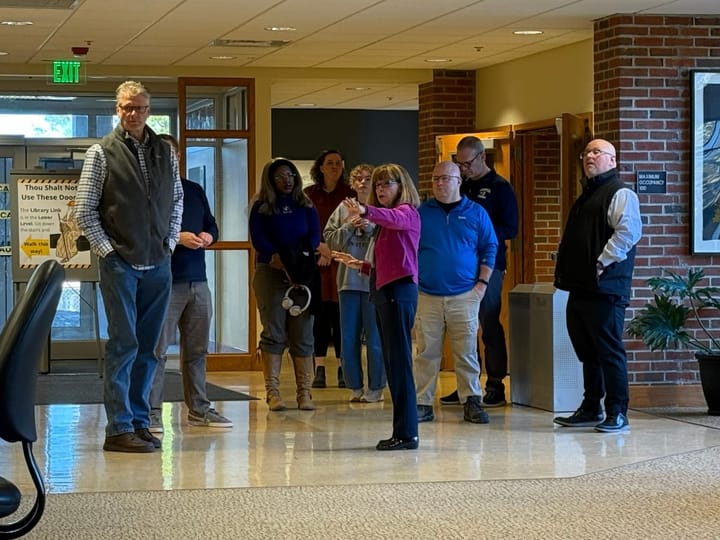Students face ID issues as Augustana begins switch to tap card system

After having to get a new student ID at the beginning of the school year, sophomore Sage Warner lost access to Ordal Dining Hall for a week.
Warner is one of several students across campus experiencing issues as Augustana slowly transitions from magnetic stripe IDs to a more secure tap system. The new tap readers have been installed in Tuve Hall, the Center for Visual Arts, Midco Arena and Wagoner Hall, requiring students who live or take classes in those buildings to get new cards, though they were given out for free.
On the first day of fall classes, Warner was told by her ceramics professor, Molly Uravitch, that she needed a new ID because the art wing classrooms got the new tap system. She had no idea about the problems that would arise within the first week of her sophomore year because of a new card.
“When I first got my ID, I was unable to use it for any food services,” Warner said, “It would only open doors. I was denied food at the dining hall, but Chick-fil-A worked with me to make sure I was able to eat.”
According to Damian Lewis, general manager of Sodexo, the problem is more procedural than technical.
“That issue has nothing to do with the new cards . It’s just a matter of the card system and meal plan system not having an automatic and seamless upload,” Lewis said. “Students who didn’t sign up for a plan yet or got a new card have to be entered manually. Sometimes this gets missed by the Student Affairs office when making the cards.”
Sophomore Abby Boltjes was one of the students that received a new ID, but she had a different experience than Warner.
“I personally didn’t have any problems with my ID. The same ID got me in with the new scanners,” Boltjes said.
Director of Information Technology (IT) Kevin Klawonn said the switch to tap IDs is a necessary transition. The swipe-card technology is decades old, and security companies now install encrypted, harder-to-copy tap readers as the industry standard. Klawonn also explained that replacement hardware for the old system is extremely limited.
Though the new technology has its benefits, some students were frustrated with the reality of the implementation.
“I think there should have been more communication between the workers at the dining hall and Student Affairs so people were able to eat,” Warner said. “We are paying a lot of money to be able to eat, and getting denied food because of an ID is not something students should have to deal with.”
Others who did not face any issues, however, approved of the new system.
“I like it better to tap — it’s easier,” Boltjes said.
Several years ago, Campus Safety and the IT department started looking into implementing the tap readers on campus.
“The biggest obstacle to the project is cost,” Klawonn said. “To replace all the mag-stripe readers at the same time would cost approximately $250,000. On top of that, all employees and students would need to have their ID cards replaced.”
Once the current magnetic stripe readers break, they will be replaced with the tap readers. With the high cost and the distribution necessary for new IDs, the IT department is looking for outside funding.
Campus Safety and IT have been fortunate in that Board of Trustees member Maria Bell has taken a personal interest in the security of the campus. This fall, Bell helped Klawonn and Rick Tupper, associate vice president of Campus Safety, apply for a Department of Homeland Security grant to address various aspects of the security of the university.
Once the new readers are replaced across campus — a process which will take years — Klawonn is hoping to implement mobile credentials, which would allow students to access their student ID on their phone. The intent would be to use that mobile ID for door access, meal plans and media rentals from the library. The IT department is currently testing the use of mobile credentials in a limited function.



